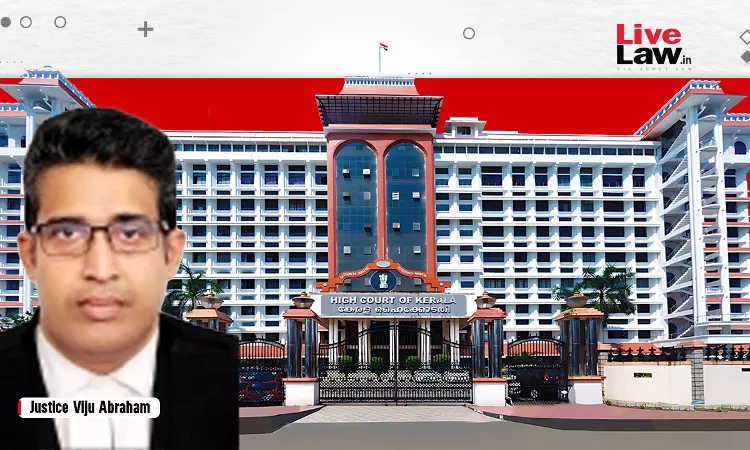NCLT Approval Not Needed To Adjudicate Criminal Complaints In Cases Where Companies Were Wound Up By HC: Kerala High Court
K. Salma Jennath
30 Sept 2025 6:50 PM IST

The Kerala High Court has recently held that the leave of the National Company Law Tribunal is not needed to proceed with criminal complaints in cases where the companies have been ordered to be wound up by the High Courts in accordance with provisions of the Companies Act, 1956.
Justice Viju Abraham was considering a report filed by the official liquidator seeking permission to proceed with the complaints, which were pending before the Chief Judicial Magistrate Court, without obtaining leave from the NCLT. The CJM had directed the company under liquidation to obtain leave of the Tribunal to proceed with the case.
The Court noted that the company in question was wound up as per the order of the High Court dated 04.02.2019 in CP No. 43 of 2015 in accordance with the provisions of the Companies Act, 1956. Therefore, it found that the proceedings have not been transferred to the NCLT in view of Section 434 of the 2013 Act and the Companies (Transfer of Pending Proceedings) Rules, 2016.
For context, Section 434 is the provision that provides for the transfer of all proceedings under the 1956 Act from the District Court or High Court or the Company Law Board. It also states that the proceedings relating to the winding up of companies which have not been transferred from the High Courts shall be governed by the Companies Act, 1956 and the Companies (Court) Rules, 1959.
Thus, since the proceedings were pending before the High Court after the commencement of the 2013 Act as evidenced by the order for winding up, the Court found that the proceedings are still pending before it and not the NCLT.
It observed:
“Since the company has been wound up as per the provisions of the Companies Act, 1956 and the matter is pending before this Court and not before the Tribunal, the provisions of the Companies Act, 1956 will apply in the present case and Section 446 of the Companies Act, 1956 which is the corresponding Section to Section 279 of the Companies Act, 2013 for obtaining leave will have no application in the present case.”
Section 446 of the 1956 Act/Section 279 of the 2013 Act provides that then a winding up order has been passed or a provisional liquidator has been appointed, suit or other legal proceeding shall be commenced, or if pending at the date of the winding up order, shall be proceeded with, by or against the company, only with the leave of the NCLT.
It also held that leave of the Court is not necessary for an official liquidator to proceed with criminal complaints under Section 138 of the Negotiable Instruments Act in view of the settled position of law laid down in Jose Antony v. Official Liquidator [1998 (2) KLT 176] and M/s Indorama Synthetics (I) Ltd v. State of Maharashtra and another [AIR OnLine 2016 Bom 1].
It further observed:
“This Court in Jose Antony v. Official Liquidator, 1998 (2) KLT 176, has held that only those criminal proceedings which relate to the assets of the company will come within the ambit of legal proceedings contemplated under Section 446 of the Companies Act, 1956… The Bombay High Court in M/s Indorama Synthetics (I) Ltd v. State of Maharashtra and another, AIR OnLine 2016 Bom 1 has considered the question as to whether the expression “suit or other proceedings” in Section 446(1) includes criminal complaint filed under Section 138 of the NI Act and held that expression “suit or other proceedings” in Section 446(1) will not include criminal complaint filed under Section 138 of the NI Act.”
Thus, it disposed of the matter and permitted the Official Liquidator to proceed with the criminal complaints pending under Section 138 of the NI Act without obtaining leave from NCLT.
Case No: Report No. 32/2025 in Co. Pet. No. 43/2016
Case Title: In the matter of M/s.Kalpetta Janakshema Maruthi Chits Pvt. Ltd. (In Liquidation)
Citation: 2025 LiveLaw (Ker) 614
Counsel for the Official Liquidator: K. Moni


